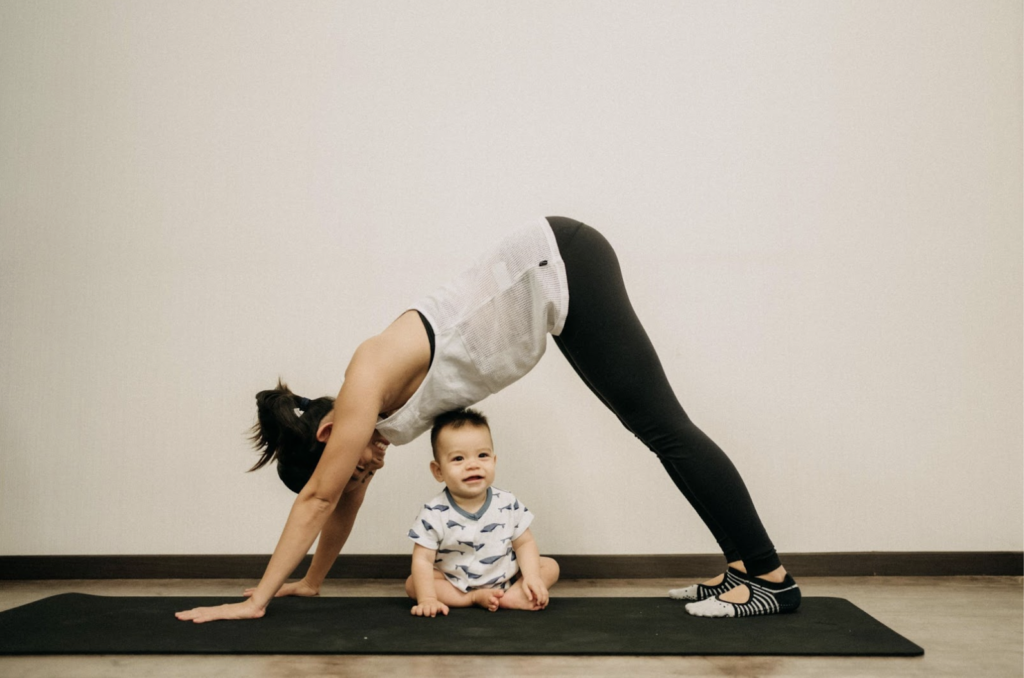The Mummy Tummy
If there is still a noticeable bulge in your tummy even months after delivery, you may be experiencing diastasic recti which is abdominal separation. This occurs when the connective tissue along the midline of your abdomen, and in fact the whole abdominal wall, becomes thinner and weaker and therefore stretched due to the growing uterus. This results in the space between the muscle bellies of your rectus abdominis to widen resulting in a “gap.” The widened gap between the left and right muscles of your stomach may result in the “mummy pouch.”
This is very common and most new mums experience this. One study shows that about two-thirds of women experience abdominal separation during or after pregnancy. Diastasis recti does improve naturally after birth, but depending on the severity of your diastasis recti along with other factors such as lifestyle and genetics, it may not always resolve itself but Pilates exercises may be able to help. Remember, always talk to your medical health professional about any concerns you have before starting any new exercise programme.
Loss Of Muscle Strength
Loss of muscle strength and connection in the abdominals and pelvic area is extremely common post-pregnancy. It is important to be patient with yourself and to be kind to yourself. In particular, mums that have undergone C-sections may feel this loss of abdominal connection a little more due to scar tissue and fascial adhesions. Having scar tissue greatly affects muscle function, range of motion and connection. But regardless of whether you’ve had a vaginal birth or cesarean birth, there is generally always a disconnect within the whole core unit (from the diaphragm to the pelvic floor).
Altered Breathing Patterns
New mums may find that the shortness of breath they started to experience during pregnancy carries on even after childbirth. As the baby grows the organs of the body tend to get displaced into the thoracic cavity to allow space for the baby. The diaphragm is then restricted and unable to function optimally resulting in shortness of breath or discomfort while breathing.
Postnatally, the ribs will tend to get stuck in a flared position due to the above occurrences. Therefore it’s important to realign and retrain the muscles and organs of breathing so they can return to their functional capacity.
New mum? Breathe Pilates has a range of Post Natal small group classes in Singapore to help you reconnect with your body and to stay strong beyond your pregnancy. To learn more, send us an email on info@breathepilates.com.sg
 WHATSAPP
WHATSAPP




